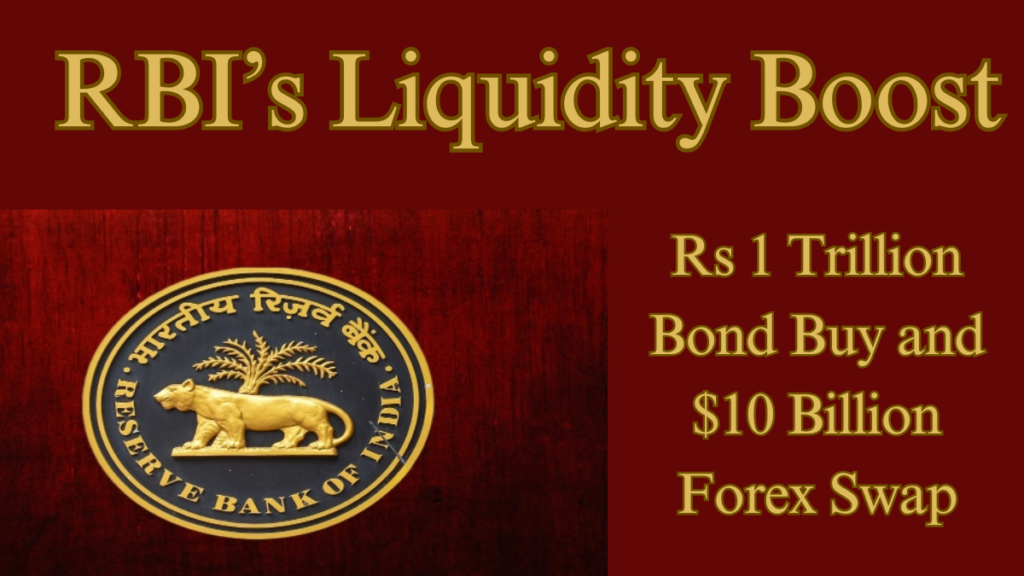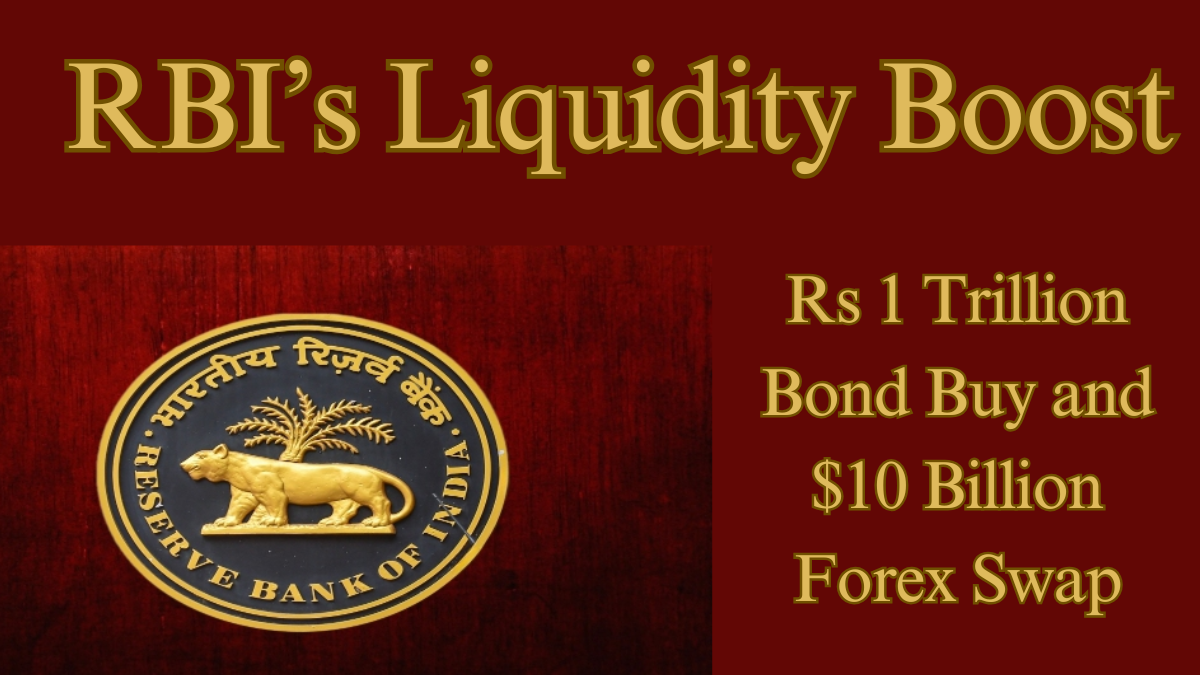In a significant move to ensure liquidity in the financial system, the Reserve Bank of India (RBI) has announced a Rs 1 trillion bond buyback and a $10 billion dollar-rupee (USD-INR) swap. These measures are aimed at stabilizing the Indian economy by infusing liquidity into the market, providing stability to the rupee, and supporting economic growth. This article delves into the details of these steps, their purpose, and how they will affect the financial landscape of India.

Key Measures Announced by RBI
Rs 1 Trillion Bond Buyback
The RBI will purchase government bonds worth Rs 1 trillion to inject liquidity into the banking system. This is intended to lower long-term bond yields, making credit cheaper and promoting investment. By reducing the supply of government bonds, the RBI ensures that commercial banks have more liquidity available to lend.
$10 Billion USD-INR Swap
Alongside the bond buyback, the RBI is conducting a $10 billion USD-INR swap to stabilize the Indian rupee. This swap will reduce volatility in the forex market and ensure that there is enough liquidity in the foreign exchange market. It will also help manage fluctuations in the rupee-dollar exchange rate, providing stability to the currency.
Why is RBI Taking These Steps?
Ensuring Sufficient Liquidity
The primary goal of these measures is to inject liquidity into the banking system. The bond buyback helps make more cash available for banks, which can then be used for lending. This move will encourage businesses and individuals to take loans, supporting economic growth.
Stabilizing the Rupee
The $10 billion USD-INR swap aims to provide stability to the rupee. By ensuring sufficient foreign currency liquidity, the RBI can manage volatility in the forex market and prevent sudden depreciation of the rupee against the US dollar.
Supporting Economic Growth
With the infusion of liquidity, the RBI aims to lower borrowing costs, boost investment, and increase credit flow. The measures are expected to support sectors that rely on credit, such as housing, infrastructure, and small businesses, contributing to overall economic growth.
Impact on the Economy
The bond buyback will reduce long-term bond yields, which will lead to lower interest rates. This will make it cheaper for businesses and individuals to borrow money, encouraging spending and investment across the economy.
With more liquidity in the banking system, banks will be able to lend more easily. This will boost credit growth in sectors like real estate, manufacturing, and small businesses, all of which are essential for India’s economic recovery.
The $10 billion swap will help stabilize the rupee by reducing volatility in the foreign exchange market. This will help businesses manage import costs, export earnings, and exchange rate risks more effectively.
Conclusion
The RBI’s decision to conduct a Rs 1 trillion bond buyback and $10 billion USD-INR swap is aimed at providing liquidity to the economy, stabilizing the rupee, and supporting economic growth. These measures are expected to lower borrowing costs, encourage investment, and ensure the continued stability of the Indian financial system. With these steps, the RBI is strengthening its commitment to ensuring a stable and growing economy, both domestically and in the global financial markets.
People May Ask
Why is the RBI buying bonds worth Rs 1 trillion?
The RBI is buying government bonds to inject liquidity into the banking system, lower long-term interest rates, and support economic growth.
What is the purpose of the $10 billion USD-INR swap?
The swap is designed to stabilize the Indian rupee by managing volatility in the forex market and ensuring adequate foreign currency liquidity.
How will this affect the economy?
This will likely lead to lower borrowing costs, stimulate investment, boost credit growth, and stabilize the rupee, benefiting businesses, households, and the overall economy.
Will this affect inflation?
While these measures can stimulate growth, the RBI must carefully monitor inflation to ensure it stays within the target range.
How will this impact global investors?
The measures should boost investor confidence in India’s financial markets, ensuring the stability of the rupee and increasing demand for Indian government securities.
Click here to learn more.
Pari is a passionate writer known for captivating stories that blend imagination and reality. Inspired by travel, history, and everyday moments, Pari crafts narratives that resonate deeply with readers.
